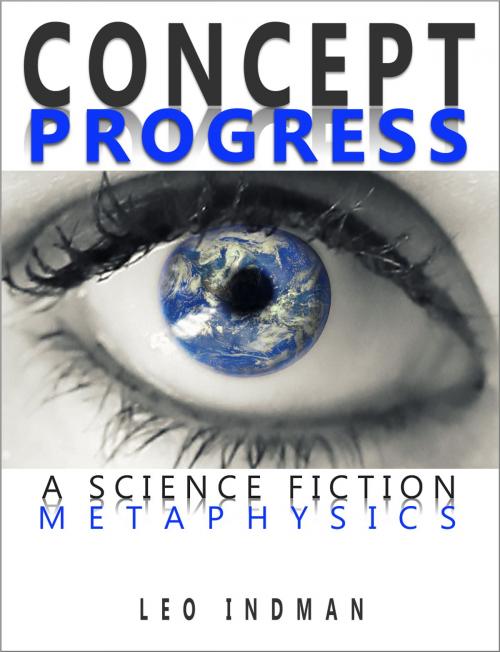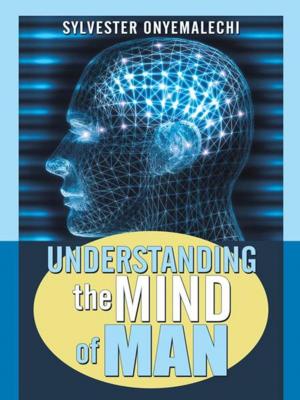Concept Progress
A Science Fiction Metaphysics
Nonfiction, Religion & Spirituality, Philosophy, Metaphysics, Science & Nature, Science, Biological Sciences, Evolution, Inspiration & Meditation, Spirituality| Author: | Leo Indman | ISBN: | 9780998828930 |
| Publisher: | Leo Indman | Publication: | April 22, 2017 |
| Imprint: | Language: | English |
| Author: | Leo Indman |
| ISBN: | 9780998828930 |
| Publisher: | Leo Indman |
| Publication: | April 22, 2017 |
| Imprint: | |
| Language: | English |
Concept Progress is a fusion of science fiction and philosophy. It is a metaphysics that centers on progress being a driving force in human evolution. This recurring viewpoint has previously stirred much debate. However, as we escalate through the 21st century, the evidence is plentiful. Concept Progress offers a fresh perspective into the topic, citing humanity's ongoing accomplishments as a convincing piece of that evidence. In the book, we celebrate ourselves for our achievements, challenge our perceived limits, and conclude that progress will eventually produce the most evolved life form. In so doing, we look back to the beginning of time and circle forward to a time that is farther away than the current age of the universe.
While the tone of the book's body resembles that of a philosophical prose, with each chapter, the reader realizes more and more that the narrative is actually one of science fiction. The intent of the book's structure and approach is manifold.
First, it is safe to say that any literature that points to the future is already, by definition, a work of fiction—no matter how serious it tries to sound. Imagining future technologies, foreseeing the next stages of human evolution, and exploring the realm of the highest dimension surely makes it a science fiction.
Second, the book is a collection of concepts—abstract notions of the mind that reflect our grasp on certain aspects of reality. It is also a play on those concepts, exposing how our progressive understanding of these notions can gradually be transcended. Each chapter starts with a sketch of a particular concept whose humanistic yet quantum mechanical context lets us identify with it and be mystified by it. From the concepts of sound and light to the concepts of consciousness and coexistence, each concept tale depicts a personal expression of our mutual worldview.
Third, each one of the ten chapters concludes with a short sci-fi story. These stories project the theme further and subtly point to each other. As we connect the dots from one story to another, the outline reveals a world that makes us wonder whether we are headed toward its future or whether we will bypass it as an alternate universe. In one story, we meet the inventor of mind-reading technology while in another story, we meet an artificial life form that will be made possible by this technology. Yet another story is about the time-traveling mind of an astrophysicist whose life's work has impacts on whole timelines, as revealed by a different story. In the end, it all comes together with the final piece of the puzzle completing not only the short story series, but also the novel as a whole.
Each three-part chapter is a triad with a distinct purpose in mind. We begin the journey with our own curiosity. This basic emotion allows us to open the door to that which we are so curiously seeking. Essentially, that covers everything. In questioning the entirety of existence, we commence with the premise that it is the element of life that sends us on a quest for meaning. So we review the trend of life's evolution on Earth from its roots to the present day and follow this trend into the distant future. The process of evolutionary development leads us to a recipe for one's own personal progress, which is comprised of physical, mental, and spiritual ingredients. It soon becomes clear that a species can change only insofar as its individual members embrace this change. And we realize that our choice in the matter has impacts not only on our own future, but also on the future of everyone who shares our timeline.
In some ways, Concept Progress is a modern commentary of Charles Darwin's revolutionary theory of evolution. In other ways, it is an encouraging observation of our humble human existence. As we widen the time scale and follow an evolutionary trend from biological, social, and cosmic angles, the concepts of evolution and progress slowly but surely become synonymous.
Concept Progress is a fusion of science fiction and philosophy. It is a metaphysics that centers on progress being a driving force in human evolution. This recurring viewpoint has previously stirred much debate. However, as we escalate through the 21st century, the evidence is plentiful. Concept Progress offers a fresh perspective into the topic, citing humanity's ongoing accomplishments as a convincing piece of that evidence. In the book, we celebrate ourselves for our achievements, challenge our perceived limits, and conclude that progress will eventually produce the most evolved life form. In so doing, we look back to the beginning of time and circle forward to a time that is farther away than the current age of the universe.
While the tone of the book's body resembles that of a philosophical prose, with each chapter, the reader realizes more and more that the narrative is actually one of science fiction. The intent of the book's structure and approach is manifold.
First, it is safe to say that any literature that points to the future is already, by definition, a work of fiction—no matter how serious it tries to sound. Imagining future technologies, foreseeing the next stages of human evolution, and exploring the realm of the highest dimension surely makes it a science fiction.
Second, the book is a collection of concepts—abstract notions of the mind that reflect our grasp on certain aspects of reality. It is also a play on those concepts, exposing how our progressive understanding of these notions can gradually be transcended. Each chapter starts with a sketch of a particular concept whose humanistic yet quantum mechanical context lets us identify with it and be mystified by it. From the concepts of sound and light to the concepts of consciousness and coexistence, each concept tale depicts a personal expression of our mutual worldview.
Third, each one of the ten chapters concludes with a short sci-fi story. These stories project the theme further and subtly point to each other. As we connect the dots from one story to another, the outline reveals a world that makes us wonder whether we are headed toward its future or whether we will bypass it as an alternate universe. In one story, we meet the inventor of mind-reading technology while in another story, we meet an artificial life form that will be made possible by this technology. Yet another story is about the time-traveling mind of an astrophysicist whose life's work has impacts on whole timelines, as revealed by a different story. In the end, it all comes together with the final piece of the puzzle completing not only the short story series, but also the novel as a whole.
Each three-part chapter is a triad with a distinct purpose in mind. We begin the journey with our own curiosity. This basic emotion allows us to open the door to that which we are so curiously seeking. Essentially, that covers everything. In questioning the entirety of existence, we commence with the premise that it is the element of life that sends us on a quest for meaning. So we review the trend of life's evolution on Earth from its roots to the present day and follow this trend into the distant future. The process of evolutionary development leads us to a recipe for one's own personal progress, which is comprised of physical, mental, and spiritual ingredients. It soon becomes clear that a species can change only insofar as its individual members embrace this change. And we realize that our choice in the matter has impacts not only on our own future, but also on the future of everyone who shares our timeline.
In some ways, Concept Progress is a modern commentary of Charles Darwin's revolutionary theory of evolution. In other ways, it is an encouraging observation of our humble human existence. As we widen the time scale and follow an evolutionary trend from biological, social, and cosmic angles, the concepts of evolution and progress slowly but surely become synonymous.















